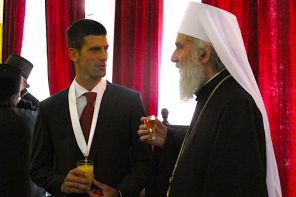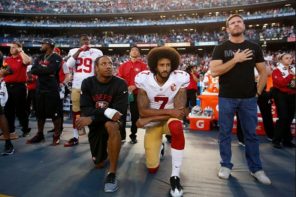What inspired you to write Jewball? What sparked your interest?
I got the idea for Jewball during a retreat for the Jewish cultural organization Reboot, of which I’m a member. A bunch of guys were sitting around the schvitz at a fancy resort in Utah, and the topic of Jewish basketball history came up. I’d never known there was such a thing, and it sparked my imagination. When I got home, I started doing research, and the novel began to take hold, both on the page and in my mind.
What’s the most important take-home message for readers?
That Jewish cultural history doesn’t have to be boring and ethnographically dutiful. There are Jewish action stories to be told and Jewish action heroes to be uncovered.
Is there anything you had to leave out?
Many, though not all, Jewish athletes in the 1920s and 1930s were devoutly religious. I self-conciously made my hero and secondary characters as secular as possible, partly because I’m not interested in writing about religious matters and partly because I don’t understand them all that well and didn’t want to get anything wrong.
More importantly, there was stuff I added to the book. In real life, the stars of Jewish basketball never did pitched battle with the German-American Bund, but in my world, the two groups are brawling all the time. The stakes are a lot higher than just “will the Jews win the big game and gain some respect”?
What are some of the biggest misconceptions about your topic?
That it never existed or was some kind of sidelight. Jewish basketball, in its heyday, was basketball, and the more that can be known about that history, I feel, the better.
Did you have a specific audience in mind when writing?
Well, Jews for sure, but I also wrote the book in the style of classic 1930s noir. I’m hoping it appeals to fans of crime and mystery fiction. I tried to make the book read as much like a novel from the 1930s as possible.
Are you hoping to just inform readers? Give them pleasure? Piss them off?
With Jewball, I’m just looking to entertain. Any information is secondary. And anyone who gets pissed off has other problems.
What alternative title would you give the book?
We were thinking of “Inglorious Baskets”—but that would, to say the least, have been severely derivative.
How do you feel about the cover?
I love it. The first edition of the book, which I published myself, had a really cool retro-’70s like cover designed by the great graphic artist Dan Shepelavy. The current edition, published by Amazon, is a little more 1940s, and is also fantastic.
Is there a book out there you wish you had written? Which one? Why?
Pick a bestseller, any bestseller. I love what I do, but my ultimate dream is to put aside the journalism and the blogging in favor of full-time fiction writing. But before I can do that, I need a hit.
What’s your next book?
I’m working on three at once: a nonfiction memoir-type thing about happiness, a piece of interactive fiction set in contemporary Los Angeles, and a sequel to Jewball. As to which one gets finished or published first, that’s anyone’s guess.




